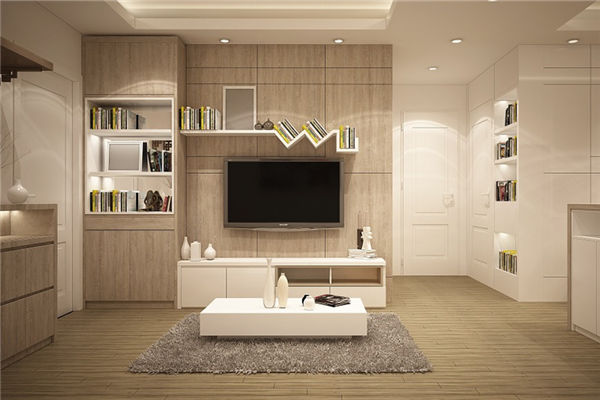In recent years, the focus on home Feng Shui has significantly increased. The quality of home Feng Shui influences the overall fortune and development of a family. However, many details of home Feng Shui are often overlooked, leading to negative impacts. This article highlights some of these often-neglected Feng Shui taboos in home design.
1. Kitchen and Bathroom Sharing the Same Door
In smaller homes, the kitchen and bathroom are often designed to be adjacent to each other to save space, separated only by a single door. This setup can bring several disadvantages to daily living. It can be awkward if someone needs to use the bathroom while another person is cooking. More importantly, the bathroom, a place of waste and bacteria, should ideally be separate from the kitchen, a place where food is prepared. When they are too close, especially sharing the same door, the kitchen can be contaminated by the bathroom’s impurities, leading to loss of appetite among family members and impacting their health.
2. Sofa Under a Beam
Many houses have exposed beams, and placing a sofa under one of these beams is a common Feng Shui oversight. A beam overhead can cause restlessness and emotional instability in those sitting underneath it, impacting the overall fortune of the household and hindering harmonious family relationships.
This Feng Shui pattern, known as “beam pressing down,” can also suppress the homeowner’s career and wealth prospects and have adverse effects on the health of the occupants.
3. Open Plan Kitchens
Open plan kitchens are a modern trend, particularly appealing to the aesthetics of younger homeowners. However, in Feng Shui, this layout is considered a taboo. Kitchens, being areas of cooking, typically generate a lot of greasy fumes. In an open-plan setup, these fumes can disperse throughout the house, impacting the health of the residents. Furthermore, the kitchen, which represents the fire element in Feng Shui, can create an imbalance in the home’s energy when open, leading to domestic unrest and health issues.
4. Mirrors Facing the Bed
A common but often overlooked Feng Shui taboo is having a mirror facing the bed. In Feng Shui, mirrors are believed to reflect energy, both good and bad. When a mirror faces the bed, it is thought to attract negative energy and disturb the peaceful sleep of the occupants, potentially leading to nightmares and restlessness.
5. Blocked Main Entrance
The main entrance of a home is considered the mouth of Chi (energy) in Feng Shui. A blocked or cluttered entrance can hinder the flow of positive energy into the home. Obstacles like shoes, furniture, or other items can disrupt this flow, leading to stagnation in the occupants’ lives.
6. Misaligned Front and Back Doors
If the front and back doors of a house are directly aligned, it is believed in Feng Shui that energy can flow too quickly through the house, not allowing it to circulate and benefit the home’s occupants. This alignment can lead to financial problems and missed opportunities.
7. Improperly Placed Water Elements
Water elements like aquariums or fountains are often used in Feng Shui to attract wealth and positive energy. However, if placed incorrectly, such as in the bedroom or directly under a staircase, they can bring misfortune and health issues.
8. Neglecting the Bedroom’s Location
In Feng Shui, the location of the bedroom within the house is crucial. A bedroom directly above a garage, kitchen, or facing a bathroom door can lead to disrupted sleep and health problems.
Conclusion
Feng Shui is an ancient art that believes in harmonizing individuals with their surrounding environment. While it may seem complex, avoiding these common Feng Shui taboos can significantly improve the energy flow in your home, leading to better health, wealth, and harmony for its occupants. When designing or renovating your home, it’s essential to consider these aspects to foster a positive and prosperous living environment.

